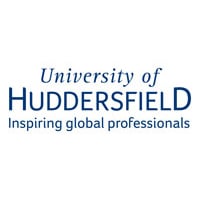Computer Science and Informatics
Position Details (PhD Program)
This Computer Science and Informatics PhD programme from the University of Huddersfield allows you to explore and pursue a research project built around a substantial piece of work, which has to show evidence of original contribution to knowledge.
Key Facts:
A full-time Computer Science and Informatics PhD from University of Huddersfield is a programme of research culminating in the production of a large-scale piece of written work in the form of a research thesis that should not normally exceed 80,000 words (excluding ancillary data).
Completing a PhD can give you a great sense of personal achievement and help you develop a high level of transferable skills which will be useful in your subsequent career, as well as contributing to the development of knowledge in your chosen field.
You are expected to work to an approved programme of work including appropriate programmes of postgraduate study (which may be drawn from parts of existing postgraduate courses, final year degree programmes, conferences, seminars, masterclasses, guided reading or a combination of study methods).
You will be appointed a main supervisor who will normally be part of a supervisory team, comprising up to three members to advise and support you on your project.
Why choose Huddersfield?
There are many reasons to choose the University of Huddersfield and here are just five of them:
- We were named University of the Year by Times Higher Education in 2013.Huddersfield is the only University where 100% of permanent teaching staff are Fellows of the Higher Education Authority.
- Our courses have been accredited by 41 professional bodies.94.6% of our postgraduate students go on to work and/or further study within six months of graduating.
- We have world-leading applied research groups in Biomedical Sciences, Engineering and Physical Sciences, Social Sciences and Arts and Humanities.
Courses include:
-
3D Imaging and Crime Scene Reconstruction
-
A Multimodal Approach to the in-vivo Measurement of Bones and Joints Kinematics in Real-time
-
ATLAS at CERN: Middleware as a Service (MWaaS) for High Energy Physics Experiments
-
ATLAS at CERN: Trigger and data aquisition (TDAQ) system
-
An analysis of the effectiveness of the twenty-first-century skills framework as a microcredentialing standard for learning analytics
-
Applying Deep Learning for Intrusion Detection System in the Internet of Things (IoT) Network
-
Asset Twin—Context Aware Energy Prediction platform/toolkit to enhance buildings Performance
-
Automatic analysis of medical notes



 University of Huddersfield
University of Huddersfield